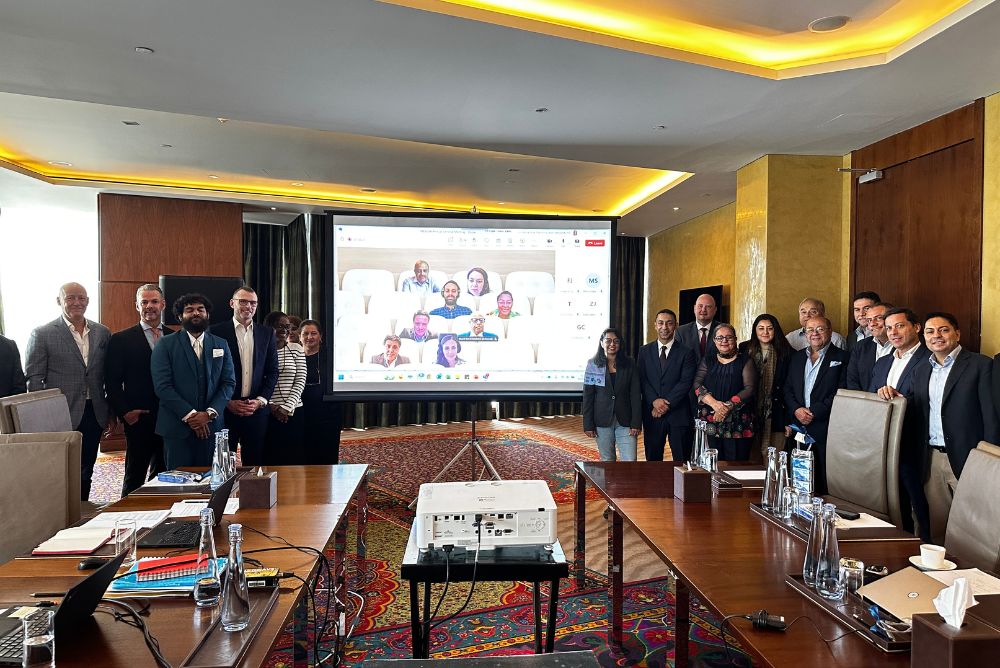WHO predicts that more MERS cases seem likely
By Doug Newhouse |
 The World Health Organisation’s Assistant Director-General for Health Security Keiji Fukuda has warned at a press conference in Seoul that more cases of MERS are likely before the spread of the virus can be truly contained.
The World Health Organisation’s Assistant Director-General for Health Security Keiji Fukuda has warned at a press conference in Seoul that more cases of MERS are likely before the spread of the virus can be truly contained.
At the aptly named ’Press Conference of Korea-WHO Joint Mission on Mers Cov’, he told local and international reporters: “Because the outbreak has been large and is complex, more cases should be anticipated. So for example, the practice of seeking care at many different medical facilities – so-called doctor shopping – may have been a contributing factor. Likewise, the custom of having many friends and family members visiting hospitalised patients may have contributed to secondary spread of infection.
In anyone’s language, Fukuda is clearly suggesting that better systems, hygiene and less close contact with infected patients remains a highly important component in containing the spread of MERS. [While he didn’t say as much, the fact that every new confirmed case in South Korea to date has been passed on to other unfortunate individuals while they have been inside hospitals for other ailments does beg several questions that need answering-Ed].
To date, there have been 150 confirmed cases of MERS CoV (including 1 confirmed case in China) reported in the current outbreak so far, with 15 deaths, after the virus was first identified in Saudi Arabia in 2012 where it has proved much more deadly.
As reported, Taiwanese carriers have already cut back their flights to South Korea and China’s Xinhuanet news agency reports that Mainland carriers are also reducing their flight frequencies, including Air China, China Eastern Airlines, China Southern Airlines, Shandong Airlines and others.

The Republic of Korea’s Minister of Health and Welfare, Moon Hyungpyo, and Dr Keiji Fukuda, World Health Organization Assistant Director General, Health Security and Emergencies. [Photo credit: WHO].
WHO SAYS ‘FAMILIAR PATTERN’ IS GOOD NEWS…
Having said this, the WHO says that this strain of MERS is showing a similar epidemiological pattern to previous hospital-associated MERS CoV outbreaks in the Middle East and the good news here is that these have been fully controlled ‘by strong basic public health measures such as infection prevention and control’.
Allaying some fears, Dr Keiji Fukuda said: “We know that there has been much anxiety about whether the virus in the Republic of Korea has increased its ability to transmit itself between humans. However, based on available sequencing studies of this virus, it does not appear to have changed to make itself more transmissible.”
Even so, Fukuda, along with Dr Jong-Koo Lee, Director, Center for Global Medicine, Seoul National University have also emphasized that continued monitoring to ensure there is no dramatic mutation ‘is critical’.
The Assistant Director-General also warned that while the Korean authorities were already putting in place many of the recommendations the mission has made and the number of new infections may be decreasing, the size and complexity of the outbreak means it will still be several weeks before the true impact of the stronger disease control measures will be evident.
“I want to strongly emphasize that we still need to wait and see before drawing firm conclusions,” he stressed.
The mission, comprised of experts in epidemiology, risk communications, virology, clinical management, infection prevention and control, as well as public health specialists, identified several reasons why the virus, which arrived in the country with a single infected traveller, was able to go on to infect large numbers of people in a relatively short time.

President Park Geun-hye, who cancelled a visit to meet with President Obama to concentrate on tackling the MERS outbreak. Along with the rest of the government, she was accused of reacting too slowly to the serious nature of the early outbreak, although she has certainly prioritised the issue over the last week. In the meantime, several Mainland Chinese carriers have cut their flight frequencies to South Korean airports. The Civil Aviation Administration of China (CAAC) has also instructed airlines to ensure that disinfection procedures are enhanced after passengers disembark from those flights that continue to serve South Korea.
ROAD TO RECOVERY RECOMMENDATIONS:
The most important steps being recommended by the mission to stop further cases of MERS CoV in the Republic of Korea now include the following: Early and complete identification of all contacts; Quarantine or isolation and monitoring of all contacts and suspected cases; Full implementation of infection, prevention and control measures; and prevention of travel, especially internationally, of infected persons and contacts.
While the WHO has moved swiftly and made its detailed recommendations, this is unlikely to reassure many those who were planning to visit the country that it is safe to do so.
JEDCO launches multi-category tenders at KAIA T1
Jeddah Airports Company (JEDCO KSA) has issued a request for proposals for several...
TR Consumer Forum 2024: Ticket sales now open
TRBusiness is thrilled to announce that you can now book your tickets to the TR Consumer Forum...
Alcohol insights: Conversion up, spend down in Q4
Conversion of visitors in the alcohol category in duty free has risen to 54% in Q4 2023,...
-
 Asia & Pacific,
Asia & Pacific,JEDCO launches multi-category tenders at KAIA T1
-
 Asia & Pacific,
Asia & Pacific,TR Consumer Forum 2024: Ticket sales now open
-
 Asia & Pacific,
Asia & Pacific,Alcohol insights: Conversion up, spend down in Q4

In the Magazine
TRBusiness Magazine is free to access. Read the latest issue now.

 Trbusiness. The travel retail Trbusiness. The magazine for global retail and duty free professionals.
Trbusiness. The travel retail Trbusiness. The magazine for global retail and duty free professionals.




















